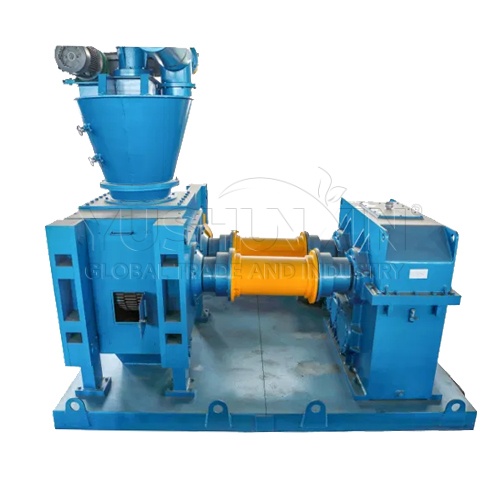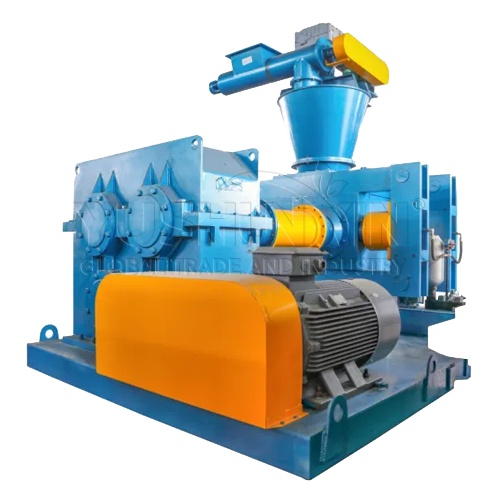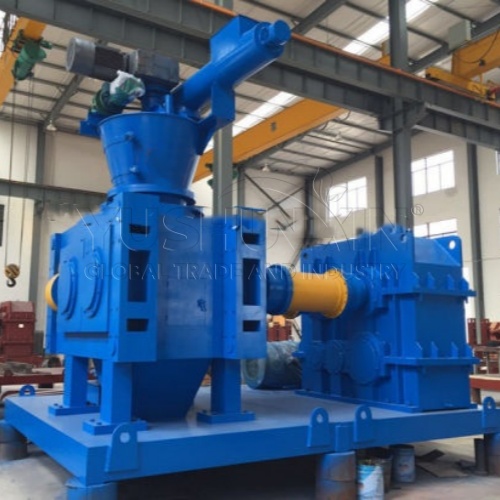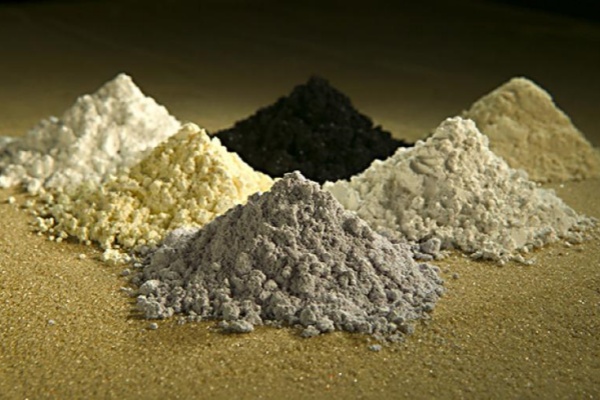Rotary Drum Fertilizer Granulator
Mining, chemical industry, building materials, fertilizer plants, etc.
1-30 t/h
5.5-37 kw
9.5-17.5 r/min
Rotary drum fertilizer granulator is one of the essential granulating equipment that can manufacture mineral materials into specific shapes. The drum fertilizer granulator is one of the key equipment in the compound fertilizer industry and is suitable for cold and hot granulation as well as the large-scale production of high, medium and low concentration compound fertilizers. The main working method is pellet wet granulation. Through a certain amount of water or steam, the basic fertilizer is fully chemically reacted after the humidity is adjusted in the cylinder. Under certain liquid phase conditions, with the help of the rotation of the cylinder, the material particles are The extrusion force is generated to form a ball.
4 Kinds of Raw Materials with High Potassium Fertilizer Efficiency
Primarily, the raw materials for the production of granular potash fertilizer were originally from potassium salt, carnallite and bitterstone. However, due to the difficulty, long cycle and high cost of mining, we recommend that manufacturers who want to produce K-fertilizer pellets can buy by-products or powders, etc., containing potassium element. Also, you can use potassium granulator to make particles from all kinds of powders in many industries.
There are many types of K-fertilizer. For example, potassium chloride, potassium sulfate, potassium dihydrogen phosphate, potassium magnesium sulfate, potassium stone salt, potassium magnesium salt, carnallite, potassium nitrate, kiln ash potassium fertilizer, etc. Furthermore, KCL leads due to its high nutrient concentration among these potash-containing materials. Many fertilizer factories prefer it because of its abundant resources and relatively low cost. Thus, it plays a dominant role in agricultural production, accounting for over 90% of potassium fertilizer usage.
Generally speaking, some experts have proven that the use of these 4 raw materials with high potassium content produces the best K fertilizer. Typically, expects convert potash fertilizer into statistics in the form of K2O to evaluate actual fertilizer efficiency. For instance, 1 ton of KCL equals 0.631 tons of K2O; 1 ton of K2SO4 converts to 0.595 tons of K2O; 1 ton of KNO3 equals 0.47 tons of K2O; 1 ton of KH2PO4 converts to 0.34 tons of K2O. Also, the potassium fertilizer granulator serves multiple functions, including the production of Russia Red Potassium and NPK compound fertilizers. Additionally, it granulates NH4Cl, MAP, DAP, (NH4)2SO4 and NH4HCO3.
How Much Does A Granular Potassium Fertilizer Equipment Cost?
etermining the cost of potassium fertilizer production equipment involves considering various models and their respective capacities. So, we offer five different models of granular potassium fertilizer equipment. And each model varies in production capacity and price.
ur potassium fertilizer granulation equipment offers customization options for your specific needs. Additionally, the price may vary due to factors such as material, components, well-known engine brands, and additional features. So, our team provides detailed information to help you make informed decisions. To obtain a precise quote, please reach out to our sales team directly.
Technical Parameters of Potassium Fertilizer Granulator
| Model | SXJFZ-360 | SXJFZ-450 | SXJFZ-650 | SXJFZ-800 | SXJFZ-1000 |
| Roller Diameter(mm) | φ360 | φ450 | φ650 | φ800 | φ1000 |
| Valid Usable Width(mm) | 170-230 | 190-280 | 290-330 | 380-450 | 500 |
| Roller Speed (r/min) | 10-25 | 10-25 | 10-25 | 9-16 | 8.5-14.5 |
| Max Form Pressure (KN) | 800 | 1300 | 2100 | 2900 | 3500 |
| Max Rolled Sheet Thickness (mm) | 8 | 12 | 16 | 25 | 35 |
| Rolled Sheet Output (Kg/h) | 1600 | 3000 | 6000 | 10000-16000 | 26000 |
| Finished Product Output (kg/h) | 900-1300 | 1800-2500 | 3500-4000 | 6000-8000 | 13000-16000 |
| Granular Size (mm) | 0.5-6 | 0.5-6 | 0.5-6 | 0.5-6 | 0.5-6 |
| Main Unit Power (Kw) | 30-37 | 55-75 | 90-110 | 210-250 | 315 |
| Total Installed Capacity (Kw) | 55 | 90 | 175 | 298 | 450 |
| External Dimension (mm) | 2300×1700×1860 | 2350×2000×2600 | 2600×2200×2900 | 3600×2800×3200 | 5000×3800×4100 |
| Total Weight (t) | 7 | 15 | 25 | 33 | 45 |
The potassium fertilizer granulating machine offers significant advancements in mineral fertilizer production. This device ensures consistent granulation, enhancing the quality and efficiency of fertilizer output. Its robust design allows for reliable operation, significantly reducing downtime. Operators benefit from its user-friendly interface, which simplifies monitoring and control. Additionally, the machine’s energy-efficient technology minimizes operational costs, making it an economically viable choice for producers. Beyond potassium fertilizers, our company provides a range of other granulating machines, including those for zeolite, bentonite, and clay. In conclusion, our advanced granulating machines play a crucial role in the efficient production of high-quality mineral fertilizers. For more information, our dedicated team remains ready to assist you.







